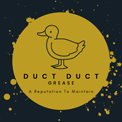
Extraction Cleaning
Why is Commercial Extraction Cleaning Needed?
Safe and Comfortable Working Environment
Kitchen extraction servicing improves airflow and air quality in a working environment. Harmful levels of smoke, cooking odour, and even carbon monoxide can gather in the air when an extraction system has not been correctly cleaned and maintained.
Improved airflow to internal heating and cooling mechanisms within the extraction system ensures parts can work at an optimal level and control the environmental temperature more efficiently.
Prolonged Lifespan
An extraction system congested with contaminants must work harder to keep air flowing. The increased strain this causes on parts within the system can result in heavy wear and tear, requiring expensive repairs or premature replacement.
Periodically cleaning a commercial extraction system will ensure parts can work at their optimal level, reduce the occurrence of costly repairs, and extend the entire system’s life.
Reduced Fire Risk
It is estimated that over 70% of commercial kitchen fires start due to extraction canopies and ductwork being incorrectly maintained.
Fire has the potential to spread rapidly in an extraction system coated in fats, oils and grease, jeopardizing the safety of employees and customers and causing business closure. Removing these types of contaminants eliminates the origin of many commercial kitchen fires and therefore reduces the possibility of one occurring.
Comply with Insurance & Fire Regulations
Commercial extraction cleaning is required as a legal necessity in the UK. By law, business owners with a commercial kitchen have a duty of care to ensure kitchen extraction systems are periodically inspected, cleaned and maintained to eliminate potential fire hazards. Unfortunately, over 70% of all commercial kitchen fires in the UK originate from extraction equipment that hasn’t been adequately cared for and cleaned.
From 2005, commercial kitchens must also adhere to the strict cleaning standards outlined in BESA TR19 guidance. It was implemented to improve health and safety standards within the UK, primarily focused on fire hazards and food contamination reduction.
In the event of a kitchen fire, businesses must provide an up to date TR19 certificate to their insurance provider to evidence that correct TR19 standards of cleaning have been upheld. Failure to do so can invalidate the insurance and leave business owners liable for repairs and hefty fines.
In addition, a routine fire inspection will look at whether fire risks and hazards have been sufficiently identified, recorded, and rectified to comply with The Regulatory Reform (Fire Safety) Order 2005 and the Management and Health and Safety at Work Regulations. Failure to do so could lead to substantial fines or even business closure.
